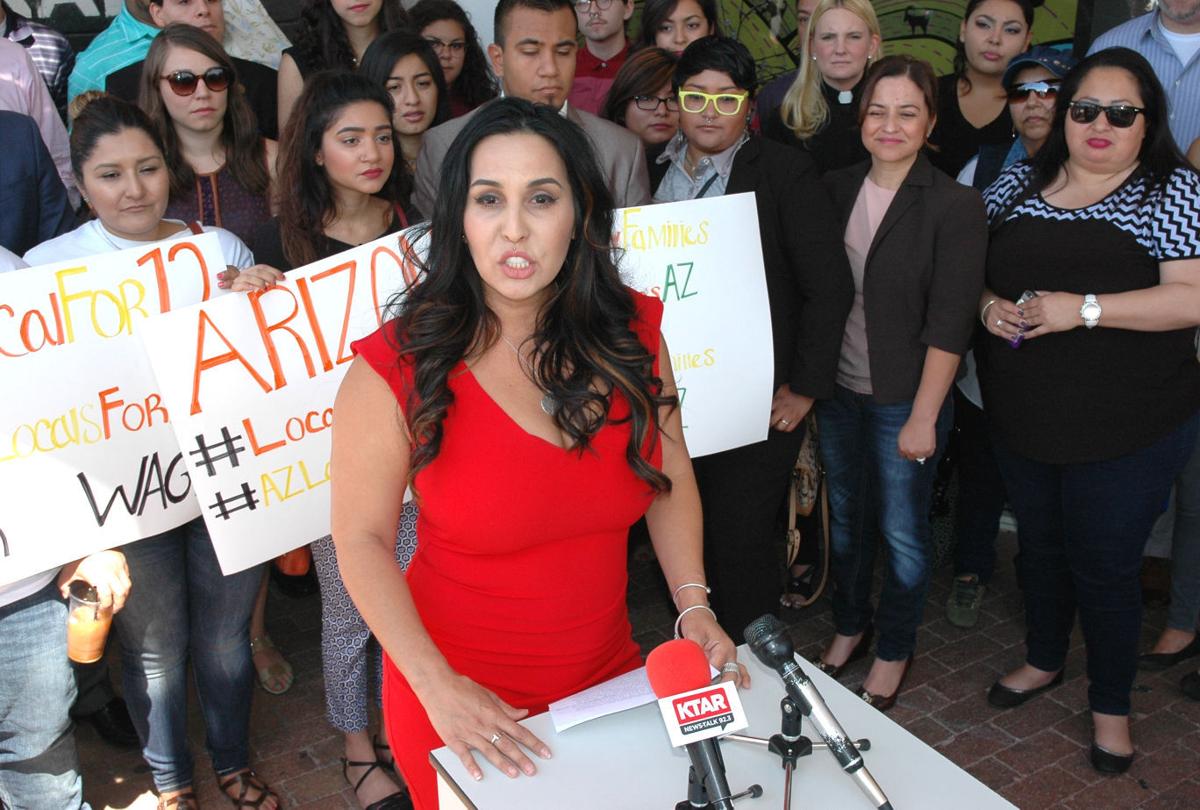PHOENIX — Arizonans will get to decide in November whether to hike the state’s minimum wage to $12 an hour by 2020 and require employers to give their workers paid time off.
In a brief order Tuesday, the Arizona Supreme Court said the Arizona Restaurant Association waited too long before filing its lawsuit challenging whether there were sufficient valid signatures to put Proposition 206 on the ballot. Justice Scott Bales, writing for the court, said the statute gives foes just five days to act after the petitions are filed with the Secretary of State’s Office.
The high court specifically rejected arguments by attorneys for the restaurant group that the Legislature, in crafting the law, must have meant that challengers have five business days. That would exclude weekends, which would have made the lawsuit timely.
Bales, however, said lawmakers know that words mean what they say.
“When the legislature wants to designate the meaning of ‘days’ in election statutes to be something other than calendar days ... it has done so expressly,” he wrote. Bales said that did not happen here.
The fight over the meaning of “five days” was crucial because Maricopa County Superior Court Judge Joshua Rogers ruled that many of the people who had circulated petitions had not complied with laws requiring them to register with the Secretary of State’s Office and provide an Arizona address where they could be contacted. That would disqualify all the signatures they gathered, leaving the petition drive short of the legal minimum.
But Rogers ruled — and the Supreme Court agreed — that it doesn’t matter whether the petitions are flawed because the challengers waited too long to bring their lawsuit.
The ruling provoked an angry reaction from Steve Chucri, president of the restaurant group.
“The laws that are in place to protect voters and the initiative process from noncompliant political committees and petition circulators exist for a reason,” he said in a written statement. “The court’s ruling overlooks those important interests in favor of a technicality.”
Until 2006 there was no state minimum wage, with Arizona employers subject only to the federal requirement to pay workers $5.15 an hour. An initiative approved by a 2-1 margin that year created a state minimum of $6.75 an hour with a requirement for annual adjustments linked to inflation that has now moved it to $8.05.
The current $8.05 an hour translates out to $16,744 a year.
Proposition 206 would mean an immediate increase to $10 an hour in January, going to $12 by 2020. It also retains the requirement for inflation-indexed future increases.
It adds something not in the original law: a requirement for three days of paid leave for workers of small firms and five days for those employed at larger firms.
The Arizona Chamber of Commerce and Industry is geared up for a fight.
“We are prepared to make our case to voters that a 50 percent increase in the minimum wage and mandated paid leave is bad for job creators and job seekers,” said Glenn Hamer, the chamber’s president. He echoed the theme of business interests trying to suppress higher minimum wages at the federal level, saying such a change “will actually hurt the hardworking Arizonans the initiative’s proponents claim to want to help.”
Pro-206 campaign consultant Bill Scheel said polling already shows strong support.
“We don’t need to convince people to vote for this,” he said.
But Scheel acknowledged, “The Restaurant Association and the chamber are going to pull out all the stops. We’re going to be aggressively fundraising to run a competitive campaign.”
And that, he conceded, means having more than already has been contributed.
“I’ve run enough statewide races to know that $1.4 million isn’t enough,” Scheel said, declining to publicly state a budget for the race.
The proponents are already in line for a small cash infusion: The Supreme Court ordered the restaurant group to reimburse them for what they had to pay their attorneys to fight the challenge. Scheel estimated those fees at $70,000.
Chamber spokesman Garrick Taylor said no decision has been made about how much money will be needed to try to kill Proposition 206.





